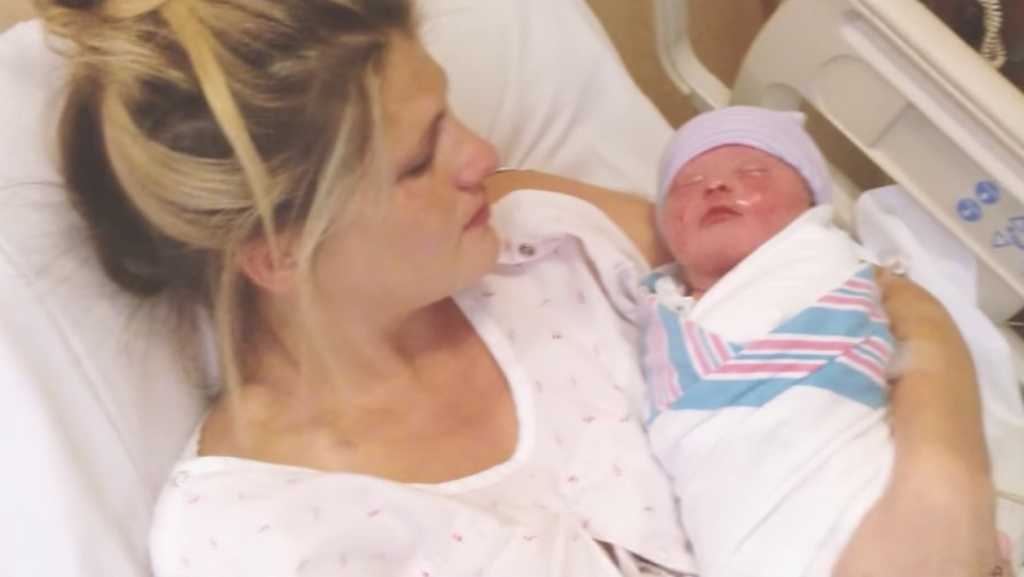When young mom Oakley Peterson delivered her second-born baby at the hospital, he appeared perfectly healthy. She was excited to have a boy, after being a girl mom to her oldest child. As she held her new baby boy, Welles, in her arms just after birth, the nurses in the hospital room whispered in the corner like something was wrong.
They told Oakley that they thought her baby might have Down Syndrome. Peterson nearly laughed off the suggestion, as she’d had prenatal testing and assumed she was too young to have such complications, which are normally associated with older women.
After the nurses took Welles to be tested, it was confirmed that he was born with Down Syndrome. Though the diagnosis was a complete shock — and both Peterson and her husband grieved the loss of the life they had planned for their son — it didn’t take long for the joyful reality to set in.
They had some friends who had a child with Down Syndrome as well visit them. Rather then convey sorrow, the friends told Peterson, “You just hit the jackpot” with this condition. The Petersons perspective began to change. As Peterson said in a video about her family:
“Once I adjust to this new journey that our family was on, I felt this pull to be Welles’ mouthpiece, his advocate. I don’t want people to feel bad for him. People don’t understand , just like I didn’t…they see the things that are hard. What they don’t see is that Welles gives me more hugs and kisses than anyone…Welles’ picks up on people’s moods and loves with a capacity that I don’t think we’re even capable of understanding…because if you spend more than two minutes with Welles, you can tell his quality of life is better than maybe all of ours. There’s nothing down about Welles, his diagnosis or about people who live with Down Syndrome.”
The video, which features newborn shots and plenty of video of a smiling Welles playing like a normal toddler, is touching in so many ways. The joy he has is palpable and it’s clear his parents wouldn’t have him any other way.
Welle’s mom says she “doesn’t even want to imagine a world without more Welles.”
The majority of pregnancies in the United States that receive a diagnosis of Down Syndrome end in abortion and whole countries are nearly eliminating people with Down Syndrome through the same procedure, it’s incredibly important to share the stories of those thriving and surviving.
Those with Down Syndrome can and do live relatively healthy lives until the average age of 6o years old. There’s no reason this beautiful population of people should be given a death sentence before they even get a chance to live.


